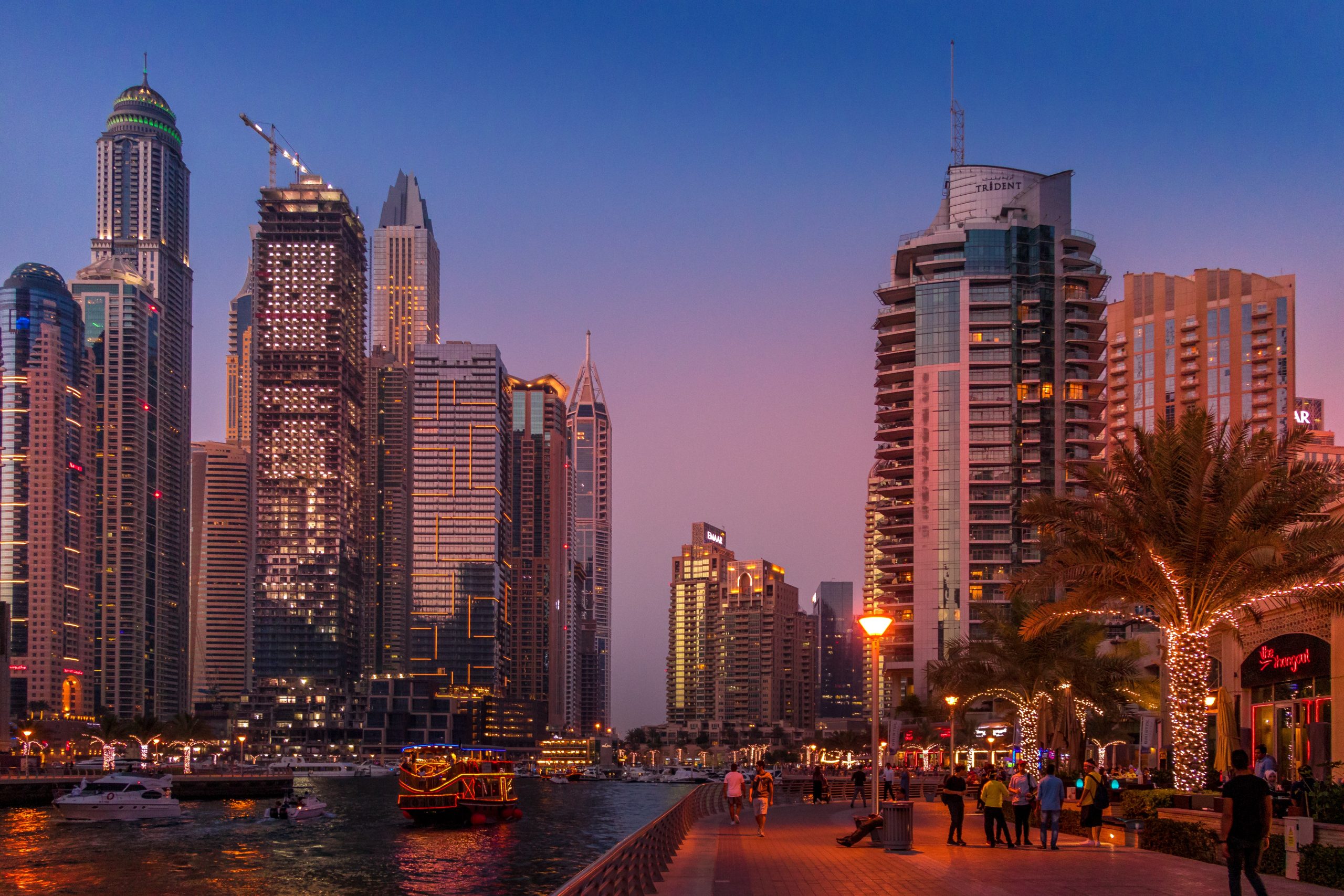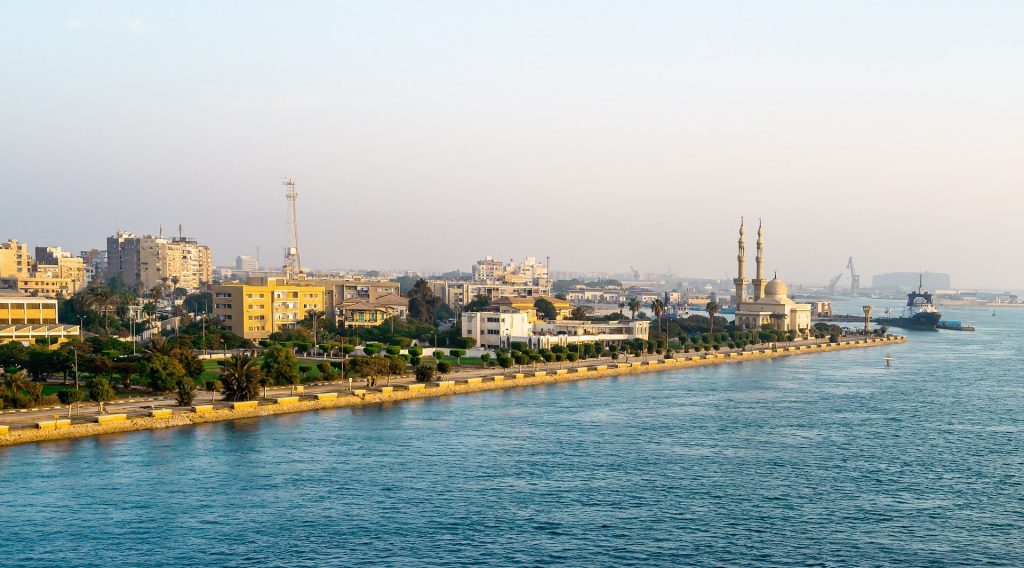Storming out of the gate, Egypt’s first sovereign wealth fund (SWF), signed a $20 billion deal with Abu Dhabi Developmental Holding Co. (ADDHC) to create a joint investment platform that would remain active for seven years. ADDHC will contribute $10 billion in cash, while Egypt will provide cash or assets of a similar value.

After the announcement, the SWF board began signing contracts with state-owned companies and ministries to include their unused assets in its portfolio to activate the platform, a top priority for SWF CEO Ayman Soliman. “State-owned companies could become part of the fund either by allocating assets or cash,” he says. “We prefer to have unused assets in our portfolio.”
Including assets is a significant benefit for state-owned bodies. “Working with the SWF will help us immensely to maximize our profits by accessing local and foreign investors,” says Mahmoud Montaser, CEO of National Investment Bank, who signed a deal with the SWF in November involving EGP 22 billion ($1.4 billion) of the bank’s assets. At the same time, Soliman agreed with the Ministry of Public Enterprise Sector to allocate unused holdings to the fund.
However, while those assets are state-owned and managed by a sovereign wealth fund, investment decisions will most likely be in line with the ADDHC’s investment scope, strategy and mandate. “We need them more than they need us right now,” says an anonymous banker.
According to Montaser, at the heart of the SWF mandate is to generate income from idle government assets. “By including those assets in the portfolio, the SWF managers could attract international and domestic private investment,” says Montaser.
Currently, Soliman is working on securing assets for the fund and then grouping them under management companies that the SWF’s board will oversee. Those assets would mostly relate to agriculture and agribusiness, tourism and the financial sector. “Our first task is to establish three sub-funds,” he notes.
The investment model will be to establish joint ventures between the SWF and local and foreign companies, as well as with other sovereign wealth funds. “How those projects will be structured will be determined on a case-by-case basis,” says Montaser.
Soliman notes that having a sovereign wealth fund to promote new investments for the private sector is perhaps the best public-private partnership model. “The assets the SWF will promote are already licensed and established on the ground with operational infrastructure and access to relevant services,” says Soliman. Examples of such assets include hotel buildings and the Mogamma, the government’s central administrative center after the government’s administrative branch relocates to the new capital.
That business model has generated a lot of interest from investors. Soliman says that seven companies and sovereign wealth funds are interested in partnering with Egypt SWF. The first is Hassan Allam Holding, which signed a memorandum of understanding in January with the fund to build power and water stations, renewable energy farms and infrastructure. At the signing, Soliman said, “This collaboration is the first of many strong steps the SWF is taking to create large specialized projects to be part of an infrastructure sub-fund we are currently establishing.”

The ADDHC
Keen to boost performance in lagging sectors, the Abu Dhabi Executive Council announced in 2018 the creation of the AED 500 million ($136.1 million) ADDHC. It is effectively a state-owned holding company with subsidiaries sharing a common characteristic — they don’t make enough money. ADDHC’s mandate is to “monitor and guide” those entities. “Generally, there has been a drive in the region to consolidate state entities in terms of operations and ownership,” Mohamed Bardastani, a senior economist for the Middle East at Oxford Economics, told The National in July.
Gulf Cooperation Council (GCC) countries adopted this strategy as a way to cut government spending and reduce costs amid unstable global oil prices. “This latest move [by the Abu Dhabi Executive Council] is part of that same focus,” he added.
To date, the Abu Dhabi Executive Council has transferred ownership of 11 entities to ADDHC. They include state-owned logistics firms, insurance, exhibitions, and media, as well as infrastructure firms that specialize in building free economic zones, real estate development, and healthcare.
Priority: Tourism
Since its inception, ADDHC has focused on tourism as part of an overarching strategy to diversify Abu Dhabi’s economic growth drivers away from oil. Its first deal was in December 2019 when it invested more than $111 million in FTI Group, Europe’s third-largest tour operator. The stated objective is to boost tourism to the U.A.E. “The collaboration will not only create many opportunities to enhance Abu Dhabi’s sustainable tourism sector, but it aligns with our mandate to further develop sectors of Abu Dhabi’s non-oil economy,” Mohamed Al Suwaidi, chief executive of ADDHC, said during the launch event.
Also during December 2019, ADDHC signed an agreement with Wizz Air Holdings to create Wizz Air Abu Dhabi, a low-cost airline that will be active in the second half of 2020. It will initially connect central, eastern, and western Europe with Abu Dhabi. Ultimately, there will be flights to the Middle East and Africa from the Emirate. “Through our partnership with Wizz Air, we aim to capitalize on the growing demand for budget travel,” Suwaidi said at the launch event.
For Egypt, ADDHC’s focus on tourism should help boost a sector that is the third-largest source of foreign currency inflows after exports and remittances. Tourism revenue grew by 28.2 percent in 2019 to an all-time high of $12.57 billion, according to the Central Bank (CBE).
Those figures should continue to increase at an even faster pace after the CBE announced three initiatives for 2020 to support tourism. The first is allocating EGP 50 billion in loans to tourism companies at 10 percent interest, with repayments stretching up to 15 years. The second is extending tourism workers’ retail loans for one more year until the end of 2020. The third initiative will automatically include tourism companies with outstanding debts of at least EGP 10 million in the non-performing debt settlement initiative. (See Cover story p. 26 for more details on this initiative).
Accordingly, announcing tourism projects on the newly created platform between Egypt SWF and ADDHC should be a no-brainer given they align with both parties’ agendas
AI opportunity
Other priority sectors for ADDHC are artificial intelligence and cloud computing. In December, the UAE-based holding firm established a joint venture — Adalytyx — with Group 42, which develops products and services powered by AI and the cloud.
Adalytyx will be responsible for implementing AI and cloud solutions primarily in products and services developed by companies and platforms in the ADDHC portfolio, according to Suwaidi during the launch event. That would invariably include projects on the common platform with Egypt.
That could prove to be an important opportunity for Egypt’s SWF given the government’s focus on promoting digital and financial inclusion and fintech in everything from checking one’s bank accounts to paying for state services. The release of the Meeza debit card last year targeting people with no bank accounts was a testament to the state’s commitment.
In the long term, AI and cloud computing solutions will be essential in managing and increasing digital transactions for over 20 million banked Egyptians and a population of 100 million, growing at 2 percent a year. Meanwhile, a proposed data protection law — still debated in parliament — should help create the correct legislative foundation for faster, more secure, and more transparent digitization.
Making it work
A lot is riding on the success of this joint-investment platform. “It opens up investment opportunities that the private sector couldn’t get into before,” says Tarek Abdel Rahman, Managing Partner of Compass Capital. “It will make it easier for public-private partnerships because the people running the sovereign fund will have a different mentality — closer to private company managers than those working in government.” That different mentality stems from contrasting mandates between the SWF and government agencies; the former has close ties with stakeholders seeking profit, while the latter’s directive is to provide services. “That, I believe, will make all the difference,” says Abdel Rahman.
However, some challenges persist. According to Soliman, one potential problem area is limited market liquidity and another is overvaluations. “We are now in a pre-investment glow period where buyers and sellers are eagerly awaiting the right opportunity,” he says. “Once the first deal happens, everything will snowball.” The problem is that no one is selling. Instead, they are waiting for someone else to get the ball rolling to raise valuations. Meanwhile, the few who are open to selling are overvaluing their assets to agree with forecasts. Soliman says that those numbers are arbitrarily inflated and not supported by the market.
Soliman said unfavorable market exit regulations are another issue. To fix that problem, the government has to change the law to appeal to investors seeking partnerships with sovereign wealth funds. “Those changes must remain stable for some time before investors start putting money in domestic assets,” says Soliman. “Investors want stability, even if the project is in cooperation with the government.”







